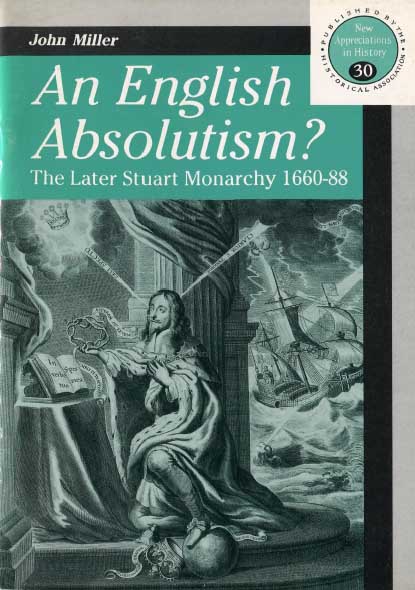An English Absolutism?
Classic Pamphlet

The Later Stuart Monarchy 1660-88
The term 'Absolutism' was coined in France in the 1790s, but the concept which described it was familiar to many Englishmen in the late seventeenth century. They talked of 'absolute monarchy', 'tyranny', 'despotism' and above all 'arbitrary government'. Their use of such terns were pejorative: they described political regimes of a type which existed on the continent and which they did not wish see duplicated in England. Fears that this might happen dated back at least as far as the 1620s, when men had talked of a 'crisis of Parliaments'. Sir Dudley Carleton told the House of Commons in 1626 that, for a representative assembly, failure to comply with the wishes of the monarch was a major step on the way to extinction. Subjects of continental rulers, he went on, were 'like so many ghosts...being nothing but skin and bones, with some thin cover to their nakedness, and wearing only wooden shoes on their feet, so that they cannot eat meat or wear good clothes, but they must pay and be taxed unto the king for it'. His conclusion was simple: 'Let us then be careful to preserve the king's good opinion of Parliaments, which bringeth this happiness to this nation, and makes us envied of all others...lest we lose the repute of a free-born nation by turbulency in Parliament'.
This resource is FREE for Secondary HA Members.
Non HA Members can get instant access for £3.49

